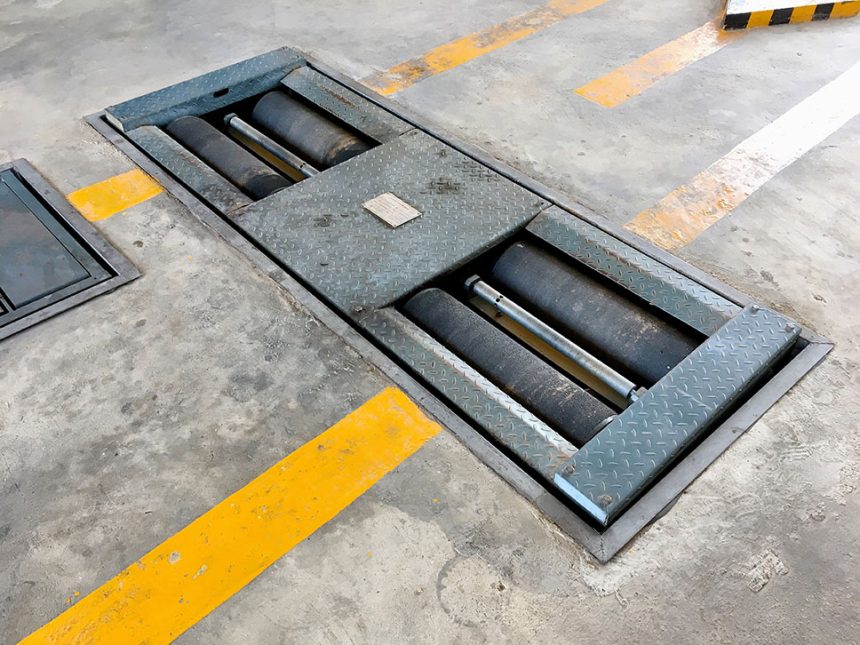JMW Solicitors’ experts coach and bus legal advice column this month focuses on brake testing and the Employment Rights Bill
I conduct an unladen roller brake test (“RBT”) at every safety inspection. As these are not laden RBTs, am I also required to complete a risk assessment?
It has long been the expectation that every safety inspection will assess the brake performance of the vehicle.
For most PSV operators, this has consisted of an unladen RBT at every safety inspection – which is an acceptable method of assessing brake performance for PSVs.
The previous edition of DVSA’s Guide to Maintaining Roadworthiness (“the Guide”), which was issued in October 2024, introduced the expectation that a risk assessment would be completed by a competent person where a laden RBT was not being undertaken or where an Electronic Braking Performance Monitoring System was not being used, detailing the reasons why an alternative method of brake testing had been undertaken.
This (and the specific reference to “PSV” as an acceptable reason for not conducting a laden RBT) led to confusion among PSV operators over whether a risk assessment was required where an unladen RBT was undertaken and, if so, whether one risk assessment each year or for each safety inspection was required.
The Guide confirms that, where there will be no change in the use or condition of the vehicle during a 12-month period, a single risk assessment for the year will suffice
The latest edition of the Guide (issued on 28 April 2025) clarifies the expectations for coach and bus operators by clearly stating (in a section dedicated to PSVs) that “it is expected that an unladen RBT will be conducted at every safety inspection”. If unladen RBT is undertaken, no risk assessment is required.
If, however, an operator chooses to conduct a decelerometer test with temperature checks (which is still considered an acceptable method of assessing brake performance) and not an unladen RBT, a risk assessment must be completed and retained on the vehicle maintenance file.
The Guide confirms that, where there will be no change in the use or condition of the vehicle during a 12-month period, a single risk assessment for the year will suffice; however, any change will require an updated risk assessment.
The Guide also states that – where an operator undertakes decelerometer testing with temperature checks — a minimum of four RBTs (including the annual test) spread evenly across the year will still be expected.
What are the potential effects of the Employment Rights Bill on zero-hour and agency drivers?
The Employment Rights Bill (“the Bill”), published in October 2024, set out to tackle job insecurity and address exploitative practices like zero-hour contracts.
A significant focus of the Bill is on extending protections to zero-hour contracted drivers and agency drivers, who often face precarious and unpredictable working conditions.
Key provisions of the Employment Rights Bill
- Guaranteed hours – Drivers will have the right to contracts reflecting the hours they’ve regularly worked over a reference period, anticipated to be 12 weeks. The Bill will therefore place an obligation on operators to offer guaranteed hours to qualifying agency drivers. The rationale behind placing this obligation on operators is due to the government’s belief that operators are “best placed to forecast and manage the flow of future work”. Provisions within the Bill will still permit operators to offer temporary contracts where there is a genuine temporary work need, such as seasonal demand.
- Notice of shift cancellation – The employment agency and the operator must provide reasonable notice for shift cancellation and changes. The definition of “reasonable notice” remains under consultation and will be detailed in secondary legislation. If “reasonable notice” is not provided, the employment agency will be expected to compensate the driver for short-notice shift cancellations, changes or curtailment payments. The employment agency will be entitled to recover an amount from the operator which reflects their share of responsibility for the shift being cancelled, moved or curtailed at short notice.
As the Bill progresses through Parliament, further details and clarifications are anticipated, particularly concerning the responsibilities of employment agencies and operators in implementing these changes. We will provide further updates once the Bill has been enacted.
[Answers by JMW Solicitors – Laura Hadzik, Partner; Rachel Steel, Solicitor]


























